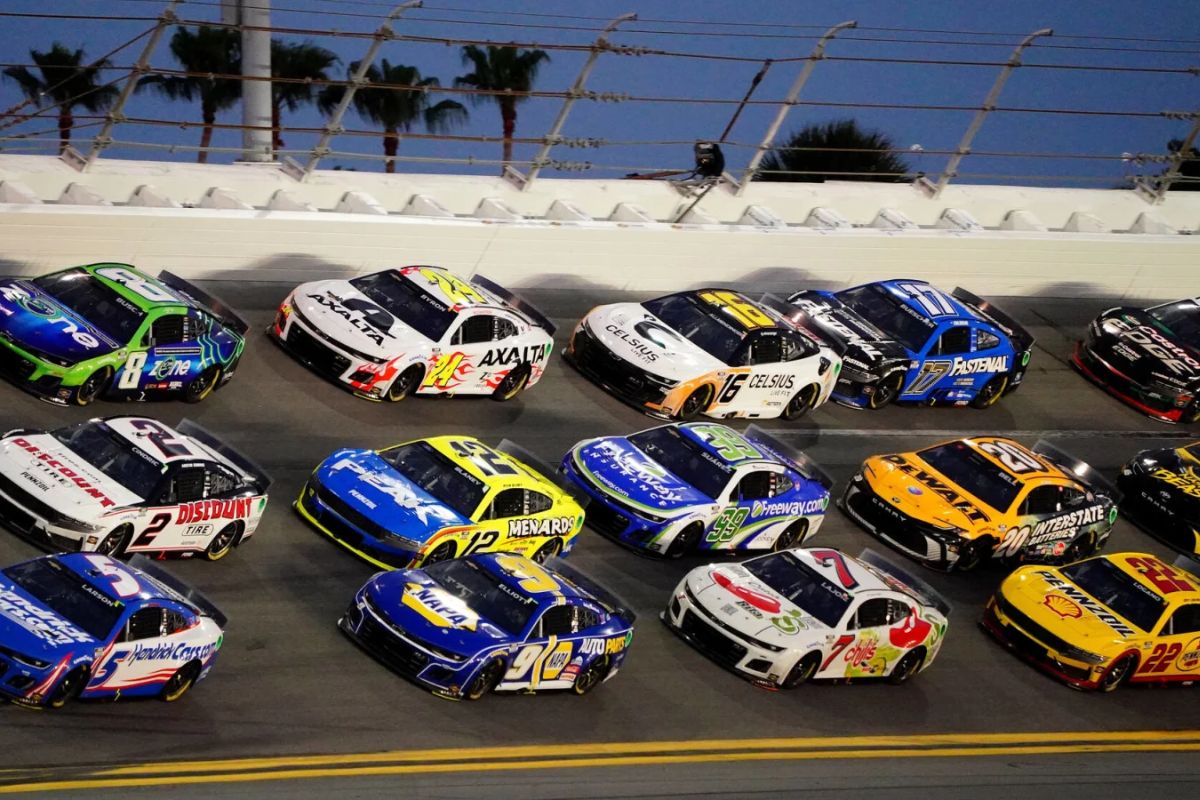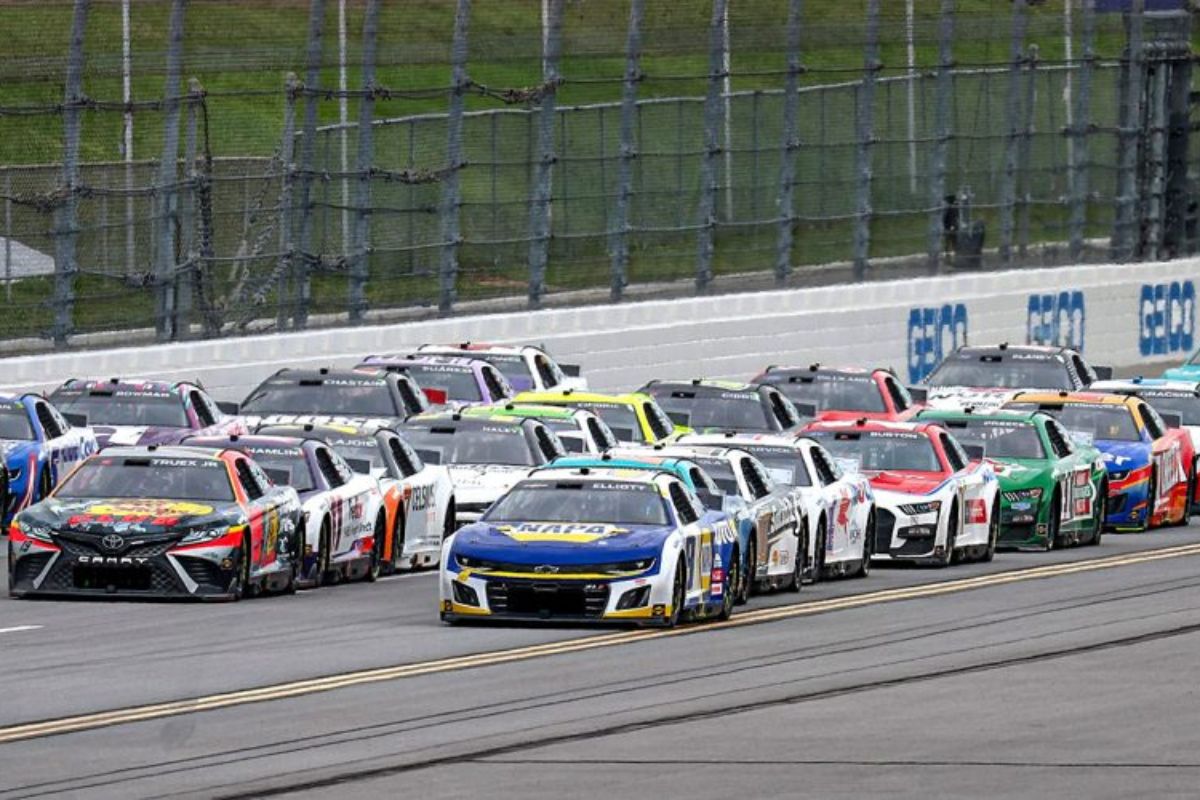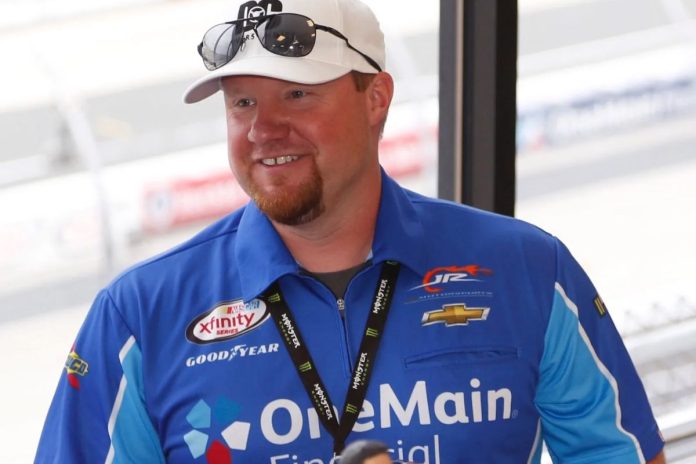Brett Griffin Exposes NASCAR: In a recent expose by Brett Griffin, the veil has been lifted on the internal strife and complex dynamics surrounding NASCAR’s charter negotiation scandal. This controversy highlights significant concerns over how charters, essential for determining team participation and financial distributions, are allocated and negotiated within the sport. Griffin’s detailed account brings to the forefront the opaque practices that potentially threaten the fairness and future stability of NASCAR. As stakeholders grapple with the implications of these revelations, the broader question emerges: how will NASCAR evolve its governance to foster a more transparent and equitable environment?
Key Takeaways
- Brett Griffin reveals undisclosed biases in the charter negotiation process favoring certain NASCAR teams.
- Griffin exposes hidden financial details affecting the equitable distribution of TV revenues.
- He highlights the resistance to permanent charters, which stifles long-term investment security.
- Griffin criticizes the lack of transparency in decision-making and revenue allocation among stakeholders.
- His revelations call into question the integrity and fairness of NASCAR’s current charter system.
Charter Negotiations: Time is Ticking
As the 2024 expiration date of the current charter agreement approaches, NASCAR and its Cup teams are deeply involved in crucial negotiations to redefine the financial and operational landscape of the sport. Central to these discussions is the charter system, which was initially established to provide teams with stability through guaranteed race entries and a structured revenue distribution model. This system is now up for renegotiation, with teams demanding for improvements that could secure long-term viability and profitability.
The charter system’s inception was a game-changing move for NASCAR, aimed at aligning the interests of the teams with the overall health of the sport. It provided teams with not only operational assurances but also a framework for financial planning. The current negotiations are pivotal as they revolve around the permanency and potential expansion of these privileges. Teams are pressing for a more favorable financial split from broadcasting and sponsorship revenues, arguing that their continued investment and commitment to the sport justify a larger share of the pie.
Moreover, the teams seek to solidify their status within the sport’s governance, advocating for greater influence over decision-making processes that affect the competition and its commercial aspects. This push towards a more democratic structure is indicative of the teams’ desire for a partnership model rather than a purely contractual relationship with NASCAR.

Stalled Progress and Standoff
Brett Griffin of Door Bumper Clear has voiced concerns that paint a grim picture of the negotiation atmosphere. His skepticism about the progress—or lack thereof—being reported resonates with a broader sentiment of frustration that is palpable among insiders. This standoff is not just a mere delay in proceedings but a manifestation of entrenched positions that could significantly impact the sport’s competitive balance and financial health.
The lack of movement in charter negotiations suggests that key players are possibly miles apart on critical issues. The implications of such a deadlock extend beyond immediate business concerns to potentially altering NASCAR’s operational dynamics. With each passing day, the urgency intensifies, yet the resolution remains elusive, hinting at either a complex strategic play by some stakeholders or a fundamental disagreement on the valuation and terms of charters.
“It’s just kind of weird that that comes out and then the first thing that comes out from the ownership side is they’ve had no movement. Which one you think is accurate?” – (Brett)
“I’m going to go with the no movement side because there seemed like there’s one guy that said they were close and just about every owner that I have seen.” – (Kraft)
Owners Advocate for Permanent Charters
Amid the ongoing standoff in charter negotiations, a significant faction of team owners, led by voices like Brett Griffin, is demanding strongly for the establishment of permanent charters to improve stability and investment security within NASCAR. This push shows a pivotal shift towards creating a more sustainable future for team owners and investors.
“If you owned something and they told you could have this worth for seven years but you thought that your position in the sport was worth it for lifetime that is a big deal. It’s like me giving you a charter and I’m telling you, ‘Alright Freddy, I’m going on to let you have this for seven years’, and you go ‘No, I want it forever, like if I’m invested here.”
“I want it forever’, and they go, ‘No, you can’t have it forever we’re going to basically let you have it for 7 years’. So essentially you’re building your house on land that you do not own. And then the land owner could come back in seven years and go I’m taking the house from you.” – (Brett)
Freddie Kraft highlighted the risky situation facing NASCAR teams such as Spire, who have invested a significant $40 million in charters. There’s uncertainty looming over whether they’ll retain these charters or face the possibility of losing them next year. It’s similar to taking a gamble, with no guarantees in sight.
Beyond the financial concerns, NASCAR teams like Spire are grappling with the potential consequences on other aspects, such as the speculated sale of Tony Stewart’s charters, which has been generating quite the buzz recently. This uncertainty adds complexity and anxiety to an already volatile situation.

Jimmie Johnson Weighs In
During a recent press session, the focus shifted towards the ongoing charter negotiations. Jimmie Johnson weighed in, highlighting that a significant sticking point revolves around financial considerations. He expressed his contentment in allowing the more experienced team owners to lead the discussions, acknowledging their expertise in navigating such matters.
“It’s not about the money until it’s about the money. So, ultimately there are protections I think that team owners are looking for, longevity that absolutely shore things up for them financially. Sure there’s discussions around money that come on the front side through the the TV partnership that are important.” – (Jimmie)
In addition, Johnson showed the uncertainty surrounding the financial aspects linked to TV deals, which adds complexity to the situation. NASCAR teams are keen to solidify their positions within the sport by securing their charters permanently. Despite the league’s current offer of a 7-year extension on charter agreements, Johnson emphasized that teams are not relenting in their efforts and are demanding for further negotiations.
Road Ahead for Charter Negotiations
The future of charter negotiations in NASCAR remains uncertain, as stakeholders continue to grapple with the complexities of financial arrangements and the allocation of television revenue rights. Despite the ongoing discussions, there remains a significant path before reaching any definitive resolutions. The core of the issue lies in the combination of substantial financial stakes with the strategic positioning of NASCAR teams, who are keen on securing their futures within the sport.
As negotiations continue, these elements will play pivotal roles in shaping the future landscape of NASCAR. Stakeholders must navigate these negotiations with a blend of strategic foresight and adherence to the principles of equity and transparency. The outcome will likely set a example for the governance of professional motorsports in the coming years, potentially influencing other racing leagues around the globe.

News in Brief: Brett Griffin Exposes NASCAR
The expose by Brett Griffin on the NASCAR charter negotiation scandal has brought to light critical issues within the sport’s governance structure. The current impasse shows the need for improved transparency, fair economic arrangements, and strong decision-making frameworks. Addressing these concerns is vital to uphold the integrity and competitiveness of NASCAR.
Stakeholders must work together to forge a resolution that guarantees financial stability and the long-term viability of the sport.
Our Reader’s Queries
Q: Who is Brett Griffin a spotter for?
A: Brett Griffin, a seasoned NASCAR spotter, notably served Clint Bowyer at Michael Waltrip Racing in the early 2010s, coinciding with Bowyer’s standout 2012 season. Griffin’s latest stint was at Kaulig Racing.
Q: What does Brett Griffin do?
A: NASCAR Spotter, Brand Activations, Sports Marketing, Athlete Management, and Chicken Wing Connoisseur.
Also Read: Brett Griffin Sparks Debate: Is Richmond Ruining NASCAR?


